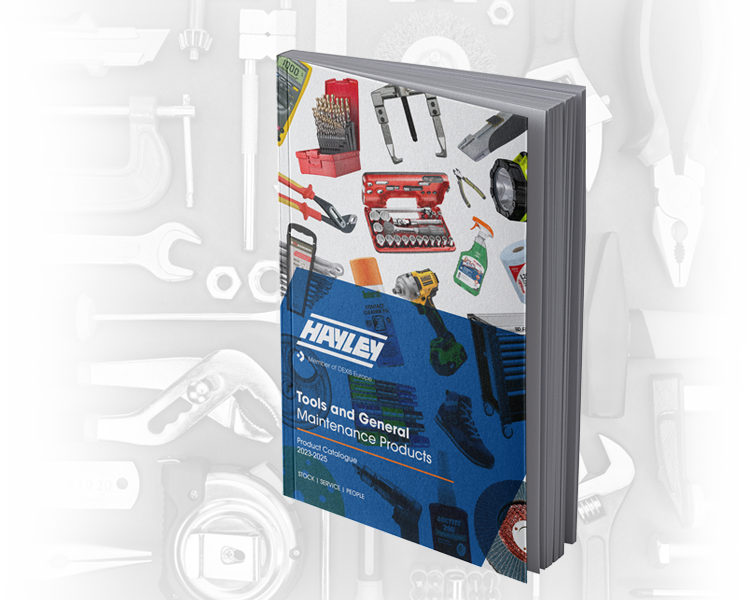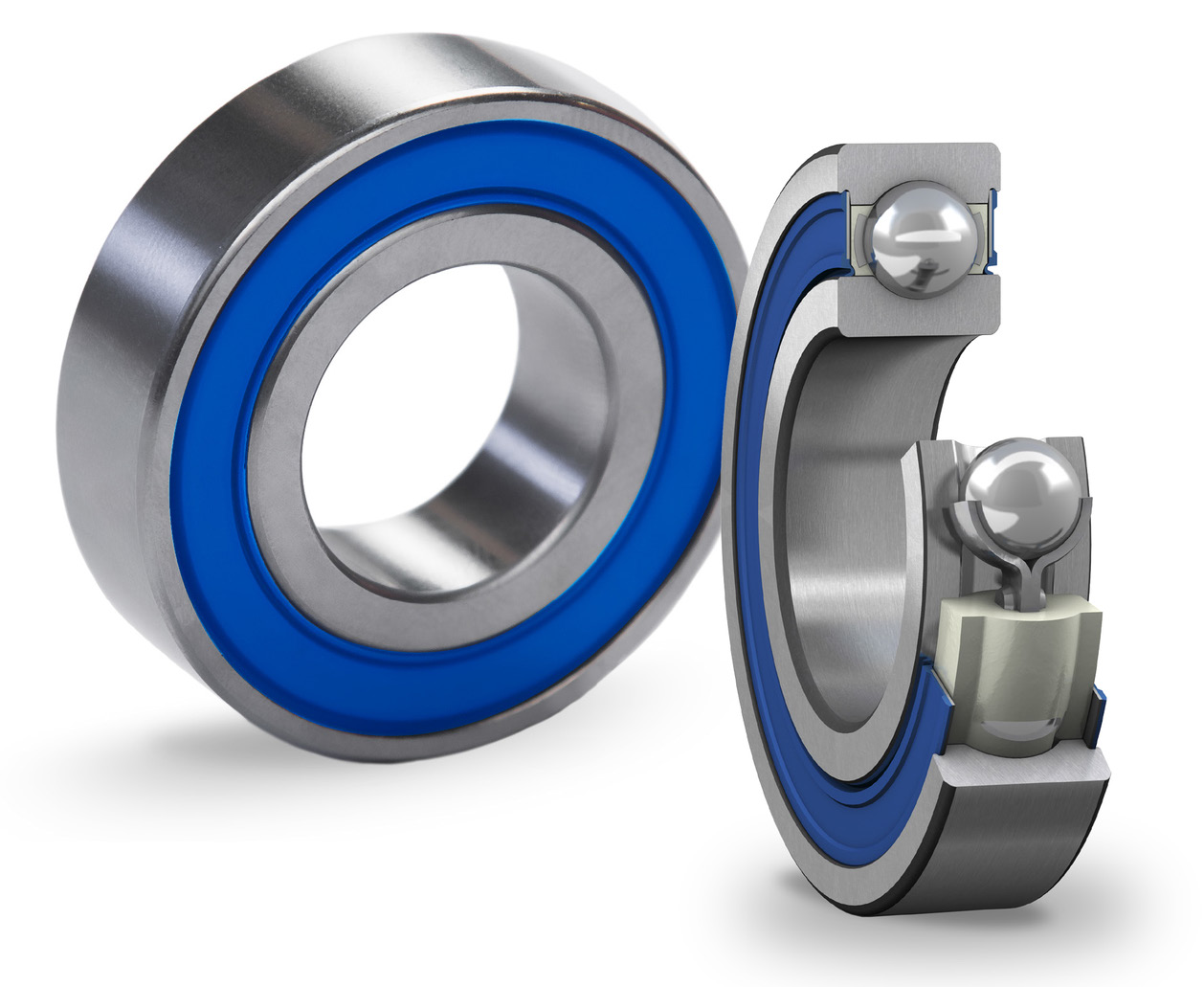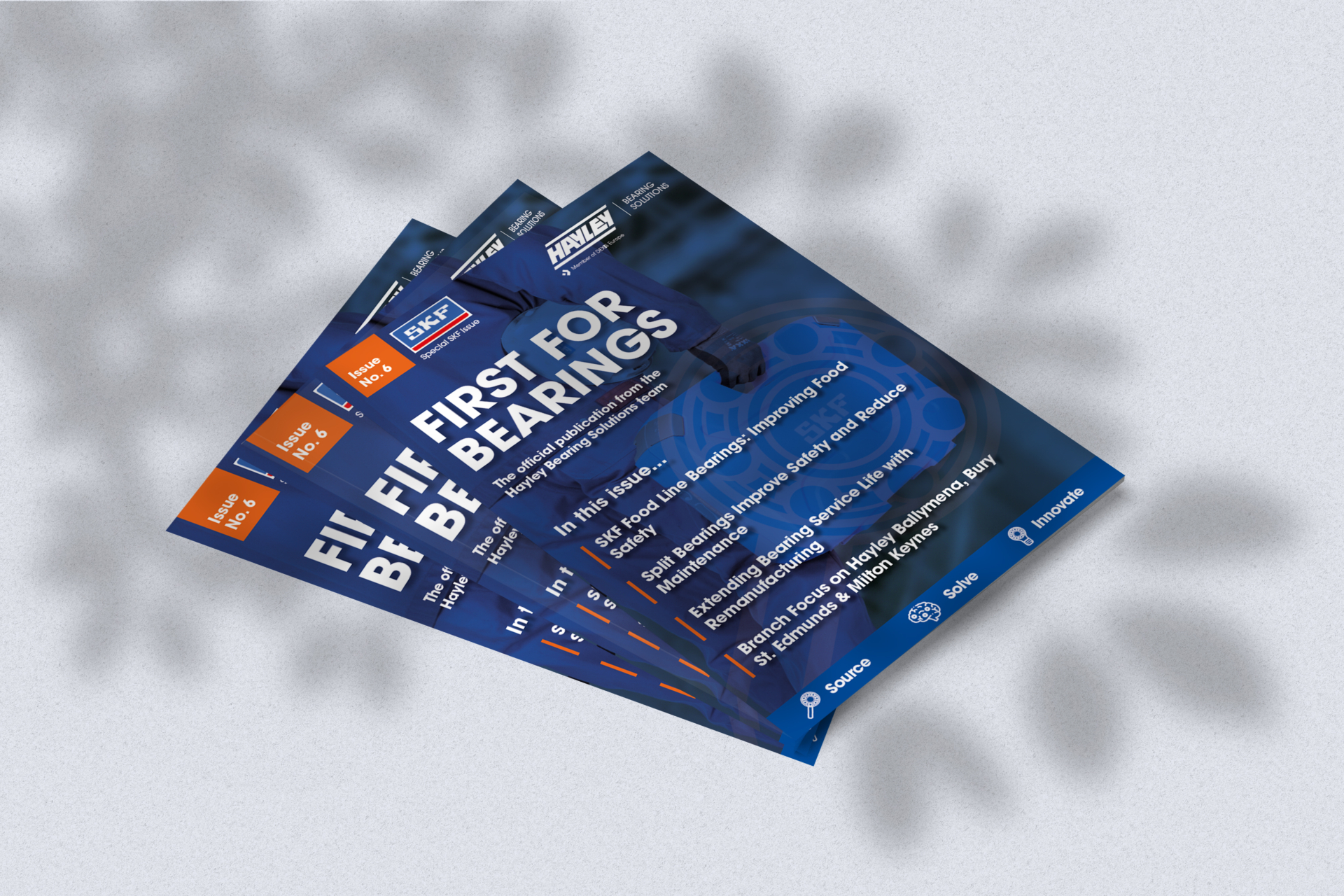David oliver, Food & Beverage Industry Manager - SKF
Using the correct bearings can help food companies maintain hygiene and avoid damaging product recalls, says David Oliver, food and beverage industry manager at SKF.
Food product recalls remain a concern for consumers. Last year, the UK’s Food Standards Agency (FSA) reported around 150 food recalls – for reasons including undeclared allergens, metal contamination and the presence of harmful pathogens. In Europe, food recalls rose by 13% in 2020, according to information from the Rapid Alert System for Food and Feed (RASFF). In North America, SKF estimates an 80% increase in USDA and FDA food recalls since 2012. Three-quarters of these are due to bacterial contamination and undeclared allergens.
Much of the responsibility rests with the food processing facilities that manufacture the food and supply it to retailers. Here, the need for high throughput means that a variety of tasks – from assembling salads to filling yoghurt pots – are automated. This makes it important to ensure that the machinery itself is not a potential cause of contamination.
These days, many of SKF’s conversations with the food industry revolve around food safety and how to avoid product recalls.
Bearings such as SKF’s are critical to the smooth operation of machinery, which ranges from robots to conveyor belts. The food industry has aggressive washdown regimes in order to maintain hygiene standards. However, these conditions are tough on bearings, for several reasons. Corrosive and penetrative chemicals, which result in rusting and breakdown in lubricant if migrating through seals. Another is the use of high-pressure water, which can force itself through bearings seals – causing grease to leak out and contaminate food.
SKF’s Food Line bearings help food companies to overcome these problems. The bearing housings are made from bright blue composite material, so are both corrosion resistant and highly visible. They are engineered to have no dead spaces – which could harbour bacteria. In addition, Food Line bearings are tightly sealed – so do not require relubrication during their lifetime. Making bearings relubrication-free is critical to food safety.
It seems to make perfect sense to use bearings like this in food manufacturing operations. However, despite rising sales of food-compliant products, there is a general lack of awareness that they exist. Even when customers are aware of them, there is a natural reluctance to try something new – which is partly due to cost sensitivity. Potential new customers usually insist on a trial – even if, for instance, a sister company is already using the products successfully.
As with every superior product, there is a cost implication. However a small premium on a Food Line bearing – versus a comparable quality product – dwarfs the savings it can generate over time.
In instances where existing units operate for 6 months with regular re-lubrication SKF have seen the Food Line – blue range last 18 months to 2 years, or even longer, re-lubrication free. In addition, a Food Line bearing maintains a higher standard of cleanliness – so is actually cheaper to clean. It requires about one-third less water – which in turn reduces the energy needed to heat it.
Food manufacturers avoid product recalls at all costs, and not just because it affects short-term profits – such as by putting a line out of action. In many ways, reputational damage caused by a recall is even worse.
Inspectors from customers wield huge power over their suppliers – and can order recalls and even stop production lines. One recent example comes from an inspection at a factory for making washed salad. An overhead conveyor was found to have rusty bearings – and the inspector closed the line – because the supermarket didn’t want rust particles in its salads.
Often, the presence of blue Food Line bearings on a machine will convince an inspector that standards are being followed. It is literally a physical manifestation of a company’s approach to hygiene and food safety. A line of rusty bearings will say the exact opposite.
Hayley offers a full range of Food Line bearings. In addition, SKF is constantly developing new products in the range.
In the cost-sensitive food and beverage industry, spending more on a ‘simple’ product like a bearing can be difficult to justify. However, the marginal increase outweighs the potential downsides of using ‘standard’ products: reduced lubricant costs, lower maintenance – and avoiding the nightmare of a product recall.
Want to learn more about the SKF Food Line range? Contact your local Hayley Group branch today. Get their details by using our Branch Finder tool.





